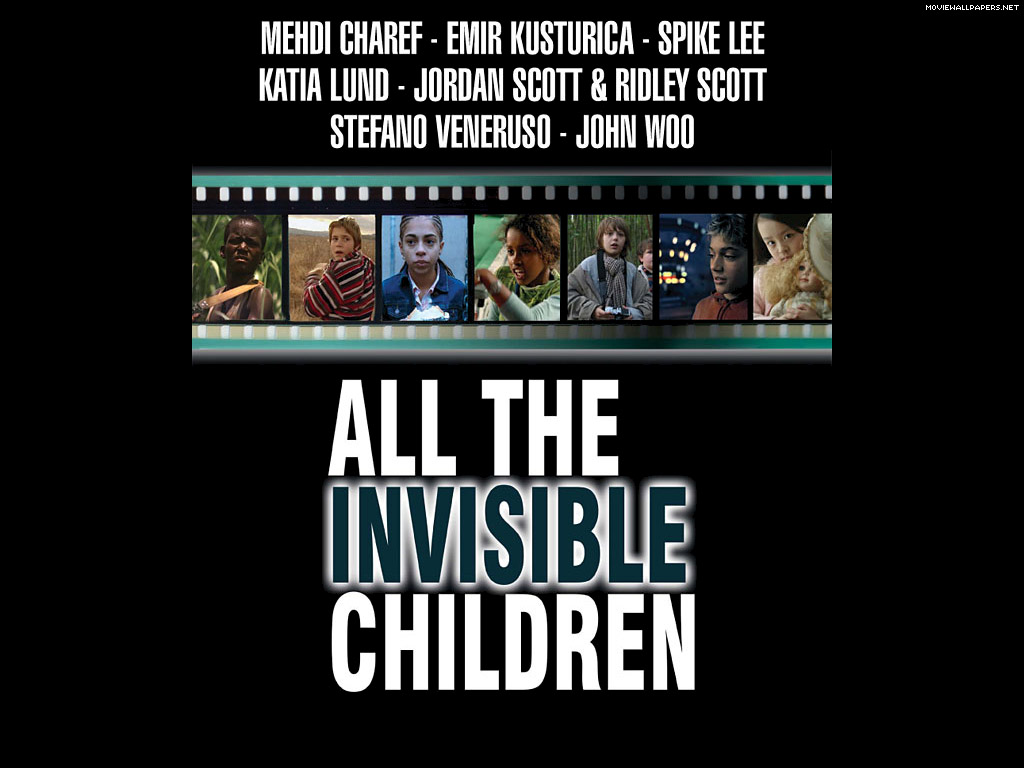Source: alisashortfilm.wordpress.com
Deutsch | Romanes | Rumänisch
The series „Romani Voices“ is giving people of the Roma community the opportunity to publish their opinions. The following text was written by Laura Moldovan. It is not a film review. It does not question the ability of Kusturica as a director. This text describes the perception of Laura Moldovan. It is her analysis of the „gypsies“ that Kusturica shows in his films and an analysis of what these constructed „gypsies“ and their caricatured world do with the perceptions of those who see these award-winning and highly acclaimed films.
The text is divided into 4 parts: an intro and 3 individual texts for different movies.
Part 1 Intro: Emir Kusturica and his „Gypsies“
Part 2: Opinion on „Time of the Gypsies“ (1989)
Part 3: Opinion on „Black cat, white cat“
You are here: Part 4: Opinion on „Blue Gipsy – All the invisible children“
Part 4: „Blue Gipsy – All the invisible children” (2006)
by Laura Moldovan
The film „All the invisible children“ was produced as part of a UNICEF project and consists of a total of 7 short films by 8 directors. The film was released in 2006. Kusturica contributed to this project as one of these 8 directors with his short film „Blue Gipsy.
About his work on this short film, the filmmaker Kusturica says:
„I have expressed my observations, my obsessions. Someone gave me a key that I turned into a script. „
The title „Blue Gipsy“ refers to Roma with blue eyes, this is seen as a symbol for something good, something extraordinary.

The main character Uros has spent a long time in a juvenile detention center. He has mixed feelings about his own release. He does not know what the future will bring if he has to live with his father again, who beats him and forces him to steal. Back in freedom, Uros is almost caught stealing. His flight from the crime ends up in juvenile prison again. An act he chooses consciously. The psychological level of this story is remarkable. It is implied that even in juvenile prison, Uros would have a better chance of getting himself and his life under control than within his joint family. In addition, throughout the whole movie it is suggested that Uros fate is already sealed: He belongs in prison, that is his place.
Generally, the Roma in this film are portrayed as thieves and deceivers, as bad and violent parents who keep their children uneducated. Another scene showing this is the one at the train station: a big begging Roma family is doing a show, playing music, singing and dancing. In the meantime, the enthusiastic audience gets robbed. With this Kusturica wants to imply that Roma abuse their music and „joie de vivre“ to deceive and exploit people (see YouTube video). The film suggests that it would be in everyone’s interest for them to live secluded and isolated from the outside world and mainstream society.
Movies like these are a big contributing factor to Roma being generally seen as inferior, parasitic people who have no place in society, which they neither seek nor want or can ever find. For the audience, negative prejudices against this ethnic group are confirmed and reinforced, and stereotypes about crime, caginess and violence are reproduced. Kusturica conveys that the Roma themselves are to blame for their unfortunate lives and that the poor living conditions that many Roma endure are not the result of centuries of discrimination, but due to the lack of understanding the European society and the failure of members of the minority.
A classic anti-gypsy film, which probably would have found the same kind of approval in the 1930s, as does today.
Further artikels releated to Emir Kusturica:
Part 1 Intro: Emir Kusturica and his „Gypsies“
Part 2: Opinion on „Time of the Gypsies“ (1989)
Part 3: Opinion on „Black cat, white cat“
You are here: Part 4: Opinion on „Blue Gipsy – All the invisible children“
